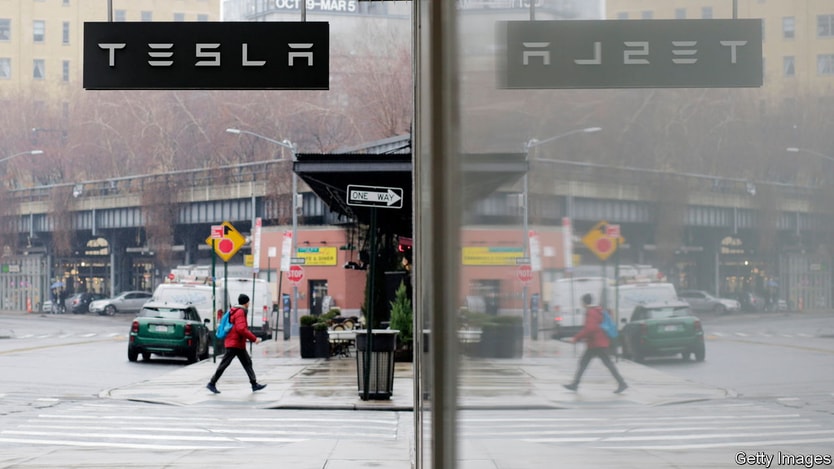After tesla’s market capitalisation swept past that of Toyota, then the world’s most valuable car company, in the summer of 2020, devoted fans and incredulous sceptics deployed a new unit of measurement. As the electric-vehicle (ev) champion’s share price rose, its worth was couched in terms of the combined value of the next two, then five, then ten biggest carmakers. A year ago Tesla’s market value surpassed $1.2trn, more than most other car companies put together. Since then it has lost 71% of that—a sum exceeding the value of most of the industry. The fortune of its mercurial boss, Elon Musk, has shrivelled by more than $200bn as a result.
The latest blow came on January 3rd, after Tesla missed analysts’ expectations for deliveries for the third quarter in a row and reported that the gap between production and deliveries had grown, suggesting softening demand for its evs. It lost 12% of its value—roughly $50bn, or one Ford Motor Company—in a day. Even bullish investors now doubt that Mr Musk will fulfil his promise of making 20m cars a year by 2030, or that Tesla’s ”Autopilot” is close to becoming a world-changing fully autonomous driving system. Yet the main reason for the market’s recalibration of Tesla’s prospects is a dawning realisation that the company is chiefly a carmaker—and that its boss is not superhuman.

